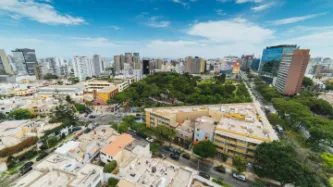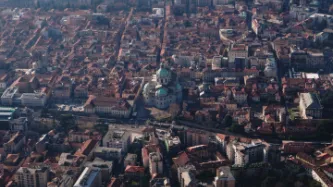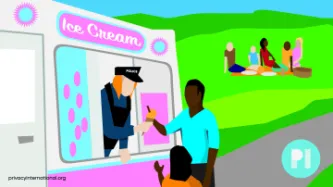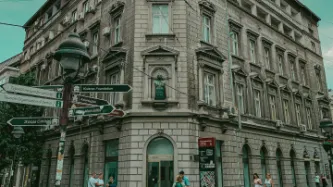Search
Content type: Examples
According to records obtained under a freedom of information request, the San Francisco Police Department used the camera network belonging to downtown Union Square Improvement District to spy on protesters during the end of May and early June 2020. The high-definition cameras, manufactured by Motorola brand Avigilon, can zoom in on a person's face and are linked to a software analysis system. Motorola is expanding its tool lineup to make it easier for police to gain access to private cameras…
Content type: Examples
Over 2020, EFF supported the right to protest without being surveilled by bringing lawsuits, offering protesters legal support, teaching protesters surveillance self-defence, and providing tools for people on the ground to use to determine what equipment their local police departments are using to spy on activists. Via public records requests, EFF discovered that the San Francisco Police Department gained access to over 400 cameras belonging to the Union Square Business Improvement District to…
Content type: Case Study
The Peruvian government has a history of collaboration with the private sector in developing technology with the alleged purpose of providing greater security to citizens. The most recent example, the smartphone application "Peru En Tus Manos" launched in the context of the Covid-19 crisis, has been developed in a similar fashion and currently collects geolocation data on more than a million users. Although Peru has a proper legal framework for public private partnerships, developments are…
Content type: Case Study
Como is one of the most advanced cities in Italy in the use of facial recognition technology (FRT). An investigation for the Italian Wired magazine published in June 2020 exposed how the system had been bought, installed and tested for months with little transparency and despite the lack of a clear legal framework.
The investigation was entirely based on tools available to everyone, such as Freedom of Information requests (FOI requests. Similar to PI’s campaign 'Unmasking policing, inc', it…
Content type: Examples
The UK Government outsourced some of the testing centre work to Deloitte. The contract states that Deloit does not have to share data of positive cases with the UK health authority Public Health England nor to local government authorities. This prevented data sharing that was arguably essential to public health surveillance.
https://twitter.com/johnharris1969/status/1278259630628618241
https://www.theguardian.com/world/2020/jul/01/why-is-there-a-delay-in-sharing-covid-19-test-data-…
Content type: Case Study
Facial recognition technology (FRT) is fairly present in our daily lives, as an authentication method to unlock phones for example. Despite having useful applications, FRT can also be just another technology used by those in power to undermine our democracies and carry out mass surveillance. The biometric data collected by FRT can be as uniquely identifying as a fingerprint or DNA. The use of this technology by third parties, specially without your consent, violates your right to privacy.
The…
Content type: Case Study
Well into the 21st century, Serbia still does not have a strong privacy culture, which has been left in the shadows of past regimes and widespread surveillance. Even today, direct police and security agencies’ access to communications metadata stored by mobile and internet operators makes mass surveillance possible.
However, a new threat to human rights and freedoms in Serbia has emerged. In early 2019, the Minister of Interior and the Police Director announced that Belgrade will receive “a…



